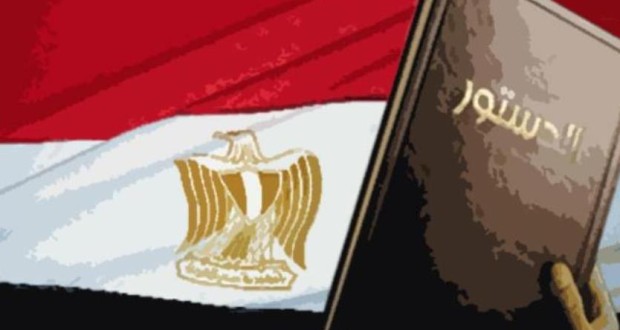Zaneta Sedíleková
August 11, 2014
Uncategorized
June 2013 saw the second turnover in the Egyptian democratic transition when millions of people gathered on the streets of Cairo to demand an immediate resignation of the first democratically elected Egyptian president, Mohamed Morsi. Morsi’s one year tenure was marked by increasing authoritarianism and islamisation, which were both reflected in the draft constitution introduced by the Morsi Government in November 2013 (the 2013 constitution).
Read More »
Julie Lenarz
January 14, 2014
HSC in the Media, Iraq and Syria, Middle East and North Africa
While the Middle East is going through one of the most turbulent periods in history, America is governed by one of the most, if not the most, risk-averse post-war Presidents. The consequences of this unfortunate match are devastating, far-reaching and long-lasting.
Read More »
Ghaffar Hussain
September 14, 2013
Middle East and North Africa, Security and Defence
Whilst it is widely agreed that the Arab Spring will have an enormous impact on al-Qaeda and the worldwide jihadist movement, there is no consensus on what this impact will look like.
On one hand, there are optimists like Fawaz Gerges and Peter Bergen who think the Arab-Spring is a death blow to the jihadist movement.
Read More »
Ghaffar Hussain
September 14, 2013
Global Governance and Human Rights, Middle East and North Africa
The ongoing 'Arab Winter' is showing that there was always more than dictatorships to blame forthe Arab world's malaise. Popular protests across the Arab world in early 2011, which led to the overthrow of deeply entrenched authoritarian dictatorships, were warmly welcomed around the world.
Read More »
Julie Lenarz
September 2, 2013
Middle East and North Africa
There are no signs of any potential intervention by the international community, as long as Assad is not resorting to chemical and biological weapons — also known as the ‘red line’ policy of the Obama administration. But shouldn’t tens of thousands of men, women and children not be a ‘red line’ in themselves?
Read More »
Julie Lenarz
September 2, 2013
Middle East and North Africa
Saudi Arabia is one of the world’s last absolute monarchies with an extremely arbitrary, reactionary and obscurantist justice system based on the most fundamental codification of Sharia law.
Read More »
Ghaffar Hussain
August 28, 2013
Global Governance and Human Rights, Middle East and North Africa
Algeria has the potential to emerge from the Arab Spring as a regional power. This may be good news for western states, but it's bad new for Arab revolutionaries. In the context of the Arab Spring, or Arab Winter, much attention has been paid to those states seen to be exerting influence from behind the scenes
Read More »
John Slinger
July 20, 2013
HSC in the Media, Middle East and North Africa
John Slinger writes in the New Statesman, that much more can be done short of an Iraq-style invasion in Syria. All too often, international events bear out the adage that "history teaches us that history teaches us nothing". Lessons from the shameful response of the international community to other crises must inform our policy on Syria
Read More »
Julie Lenarz
July 3, 2013
Middle East and North Africa
The crisis in Syria is on-going and so is the debate about the West’s options to help end the bloodshed. Those in favour of a more pro-active policy are regularly confronted with a variety of arguments against intervention.
Read More »
Jacob Campbell
June 10, 2013
Global Governance and Human Rights, Middle East and North Africa
Who could have foreseen that Libya, within just one year of Muammar Gaddafi’s death, would join the community of democratic nations? Virtually everyone predicted that the Islamist tide would sweep through Tripoli as it had done through Tunis and Cairo. But it was not to be. Instead, the Libyan people made fools of us all.
Read More »

 Human Security Centre Human Rights and International Security Research
Human Security Centre Human Rights and International Security Research


